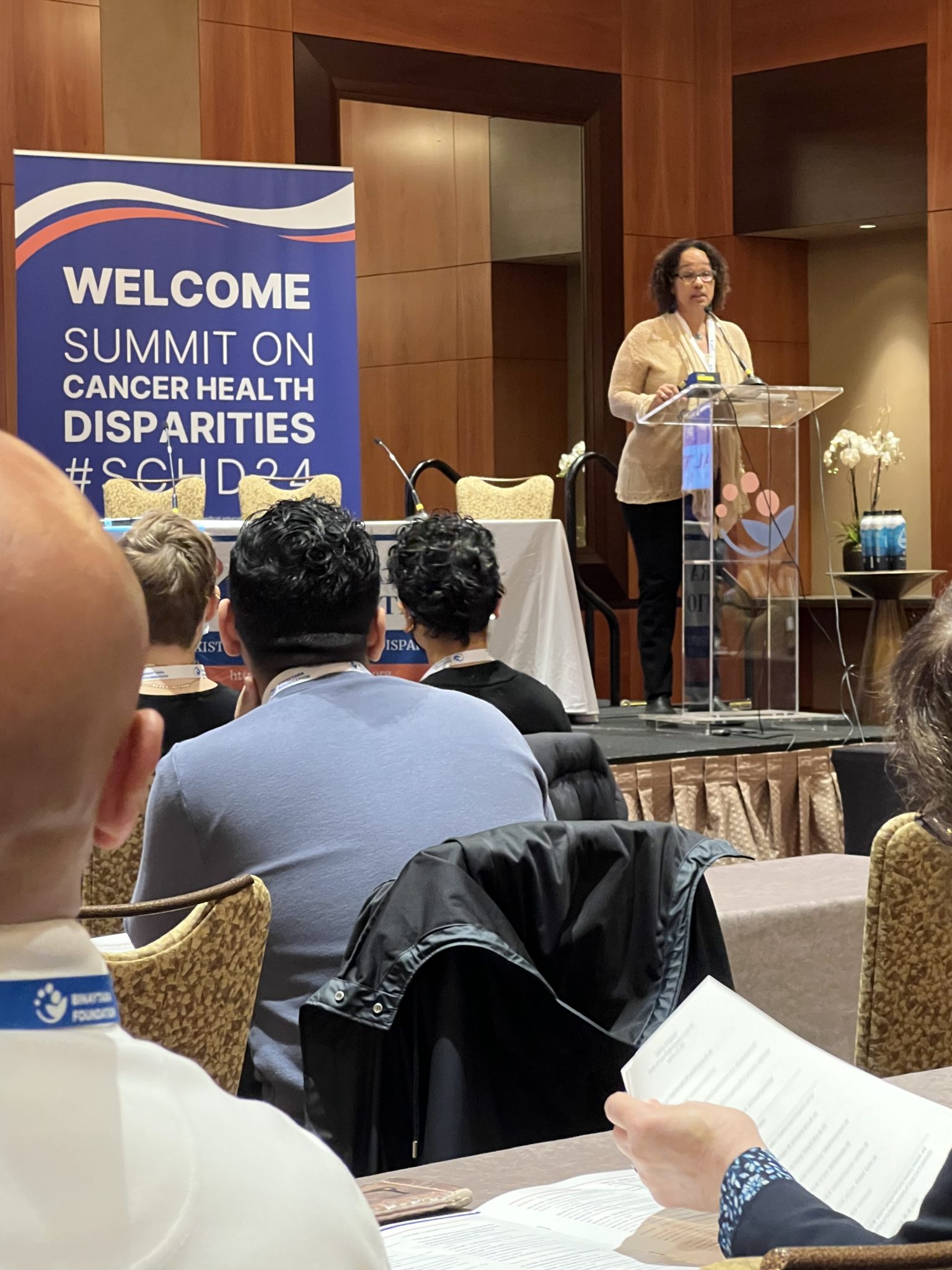A Discussion on Inclusive Research and Community Engagement
Author: Bowen He, MD
At The Summit on Cancer Health Disparities 2024, Dr. Michele Peake Andrasik opened the first session by reviewing the health disparities faced by minority communities in the context of the COVID-19 pandemic. The presentation highlighted the concept of a ‘syndemic’—a synergy of epidemics where overlapping socioeconomic and health conditions exacerbate disease impact. This is notable in the southern United States, where disproportionately black counties suffer from high rates of unemployment and inadequate insurance coverage in addition to higher incidences of diabetes, heart disease, and HIV. These conditions are associated with worsened clinical outcomes from COVID-19 in these regions.
There are numerous social and structural factors contributing to increased COVID-19 risk among people of color. These individuals are overrepresented in essential service industries, often in low-wage jobs that do not offer health insurance, paid sick leave, or the option to work from home. Additionally, residential segregation and limited access to healthy foods create environments that further entrench health inequities. The legacy of racial, ethnic, gender, and sexual misclassification has contributed to persistent health disparities. Accurate data collection and representation are paramount in developing interventions that effectively address the needs of these communities.
One structural factor that leads to disparities in care is bias and stereotyping by healthcare providers. The inherent time pressure, cognitive overload and uncertainty of clinical medicine further exacerbate the tendency to make biased decisions. It is necessary to both recognize and confront these biases to improve health outcomes for minority populations, who have been persistently underrepresented in clinical trials. It is also important to create a community engagement strategy to ensure that health research and interventions are inclusive and effective. This involves using community-based
participatory research approaches, ensuring comprehensive community involvement, and developing materials that respect cultural nuances.
In conclusion, Dr. Andrasik calls for a multifaceted effort to lean into the discomfort of addressing personal biases, embrace inclusivity in data collection practices, and to build and sustain relationships with minority communities. Such continuous and iterative actions are essential to overcoming the health disparities that pervasively affect these populations, ensuring that public health strategies and treatments are equitable and effective.
Bio:
Dr. Bowen is an Internal Medicine physician practicing in Redmond, Washington. No conflicts of interest to disclose.





